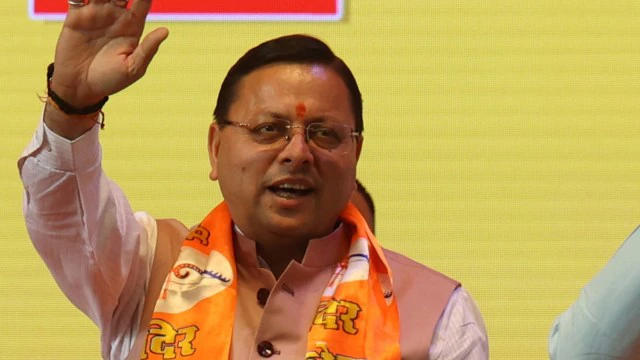Uttarakhand News— The Supreme Court of India has taken a strong stand against Uttarakhand Chief Minister Pushkar Singh Dhami’s decision to appoint an Indian Forest Service (IFS) officer, overruling multiple objections raised by officials and legal experts. The court’s sharp criticism has sparked a debate on the state’s governance practices, particularly regarding appointments that bypass standard procedures.
Background of the Controversial Appointment
The case centers around the appointment of a senior IFS officer to a prominent administrative post in Uttarakhand, a decision that reportedly overlooked procedural objections and legal norms. The appointment was made despite concerns raised about the officer’s eligibility and questions regarding the justification for such a move.
The Dhami government’s decision has been challenged in the Supreme Court, where petitioners argue that the appointment was driven by political favoritism rather than merit. The petitioners claim that the government ignored established rules and objections from legal and bureaucratic channels, raising serious concerns about transparency and adherence to the law.
Supreme Court’s Strong Remarks
During the hearing, the Supreme Court expressed its dissatisfaction with the Uttarakhand government’s handling of the appointment, emphasizing that proper legal procedures must be followed in all government appointments. The court stated that overruling objections raised by officials and legal experts compromises the integrity of governance, sending a dangerous message that political leaders can bypass established norms at will.
The court, led by Chief Justice [Name], remarked, “Chief Ministers cannot act arbitrarily in appointments. Governance requires adherence to the Constitution and established procedures, not personal discretion.” The bench further pointed out that political power does not exempt state leaders from following the law, and any deviation from due process would invite judicial scrutiny.
Key Legal and Governance Issues
The core issue in this case revolves around the principle of merit-based appointments versus politically motivated decisions. The Supreme Court’s criticism highlights the importance of maintaining transparency and objectivity in government positions, especially when objections are raised by other government departments or legal bodies.
The court also raised concerns about the potential misuse of power when political leaders bypass objections from within the system. This move, the court warned, sets a dangerous precedent and erodes trust in the government’s ability to act in the best interests of the public.
Political and Public Reactions
The Supreme Court’s remarks have triggered a political storm in Uttarakhand, with opposition parties seizing the opportunity to criticize the Dhami government. Leaders from the opposition have demanded a rollback of the appointment and a thorough review of all high-level government decisions made under Dhami’s tenure.
Several political analysts have pointed out that this issue has brought the spotlight on how state governments use their discretionary powers in appointments. The controversy has also raised questions about the balance between political authority and bureaucratic independence, a topic that resonates not only in Uttarakhand but across India.
On the other hand, the Dhami government has defended its decision, asserting that the appointment was made in the best interests of the state and that all relevant rules were followed. The government also downplayed the objections raised, claiming they were part of internal disagreements that should not overshadow the larger goal of efficient governance.
Implications for Future Appointments
The Supreme Court’s intervention is expected to have a far-reaching impact on future government appointments in Uttarakhand and other states. Legal experts believe this case could serve as a benchmark for ensuring that appointments to key positions are carried out with greater transparency and in compliance with legal procedures.
There is also a growing call for more stringent oversight of political appointments, especially when they involve sensitive posts that directly impact governance and policy implementation.
Read More: Chief Ministers Not “Kings”: Supreme Court On Uttarakhand Appointment

